Given this is Pitti Uomo week, it seems fitting to bring up the topic of sprezzatura, which readers requested a post on a couple of months ago.
It is also fitting because the term is so misused, often in reference to Pitti.
Sprezzatura doesn’t mean random splashes of eye-catching dandyism. Quite the opposite. It is the art of appearing stylish without any appearance of effort. To the lack of artifice, rather than its display.
We have to include the quote from Castiglione, who coined the term: “A certain nonchalance, so as to conceal all art and make whatever one does or says appear to be without effort and almost without thought.”
Bizarre, then, that the term is used in reference to strutting peacocks at Pitti, whose striving for style is so obvious. Why is this?
Because there are many ways to give the appearance of nonchalance. One is to be truly comfortable, to have worn the same set of stylish clothes for so long that they feel like a second skin – and then have the confidence to be at ease in any social situation.
A second is to leave bits of your clothing undone, or otherwise worn haphazardly, to give the impression you have forgotten about them. This second route is much easier, but rarely successful. Usually, the artifice is obvious. It looks painfully contrived.
Unfortunately this second route is the one often taken up at Pitti, leading to things like undone monk-strap shoes, sloppy DBs, and shirt collars with the corners flipped up. These have then been equated with ‘quirks’ such as bowler hats, capes and pink shoes.
This demonstrates how dependent sprezzatura is on context. If you’re the only man in the office that splays the blades of his tie, it could be seen as nonchalant. But if you’re at Pitti and seven other men are walking around doing it, and more importantly everyone is studying everyone else, then the artifice will be obvious.
Much as we hate the fact, much about style, and certainly originality, is dependent on how the people around us dress.
There are other routes to sprezzatura – to the appearance of nonchalance. Bruce listed several a few years ago in a nice article for Mr Porter. They include clothes that are obviously well-worn (Nancy Mitford: ‘All nice rooms are a bit shabby’), wearing vintage or inherited clothing, and combining casual and formal dress (ref. the trend for bracelets with tailoring – the perfect example of something that looks great until everyone else is doing it).
It is no coincidence that so many lauded attributes of style have a sense of ‘ease’ at their core. Sprezzatura is clearly one, as is nonchalance, and even elegance – that so often misused word – requires grace and simplicity in its bearer.
The men who have sprezzatura, therefore, are not the peacocks of Pitti but men like our friend Tommaso Capozzoli (pictured top).
Tom cares about his clothes. He is specific with his collar shape (Simone Abbarchi), obsessed with the weight of trouser cloth (Holland & Sherry Pardessus), but always gives the impression that he has just thrown on the things that were at the front of wardrobe.
When we saw him this time last year he had a cold, and came down in the morning wearing a thick, fisherman’s sweater, tracksuit bottoms and Adidas Stan Smiths. It was the first time in my life I’ve wanted a pair of tracksuit bottoms.




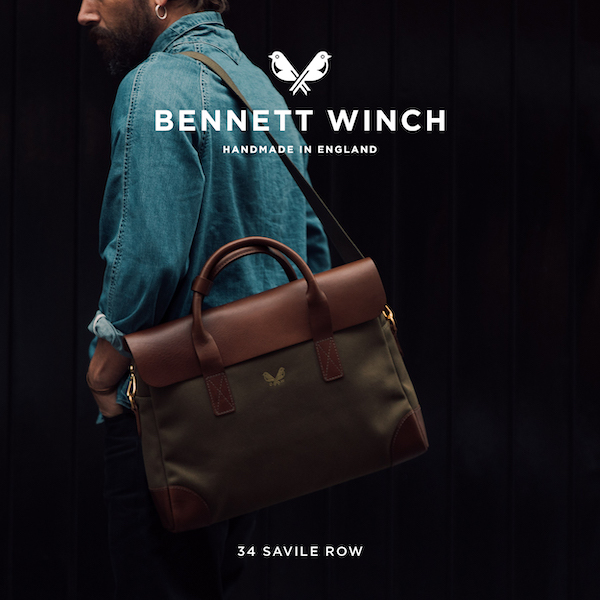







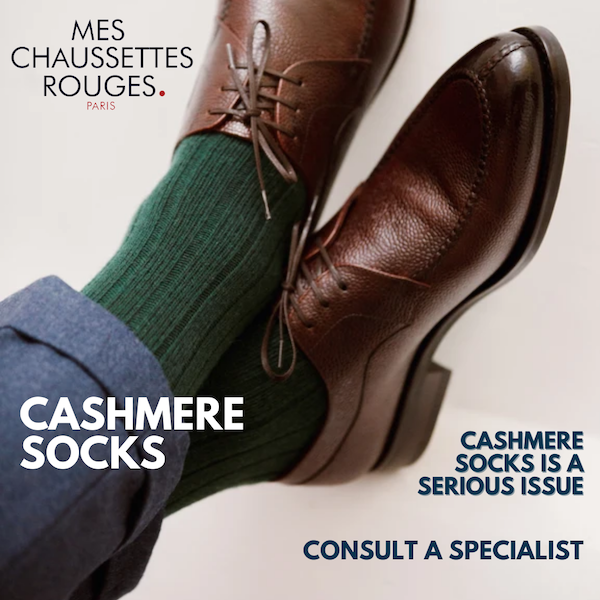










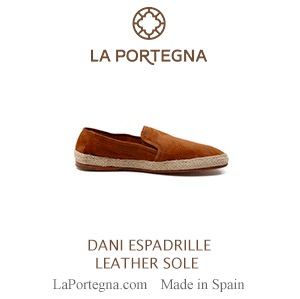
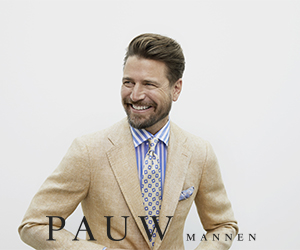

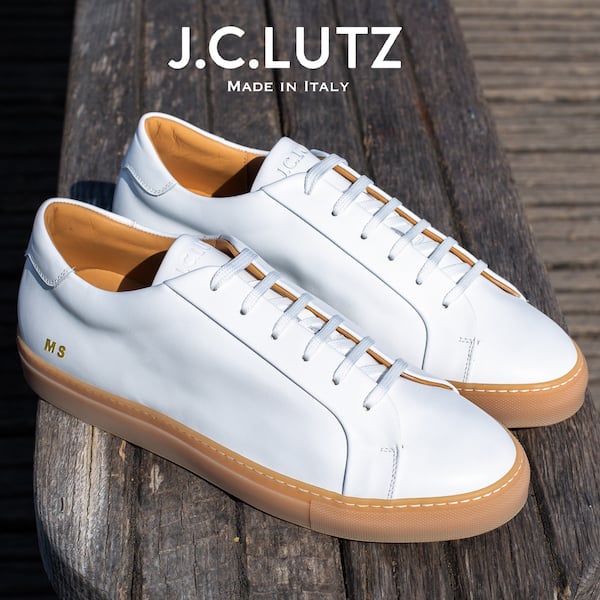

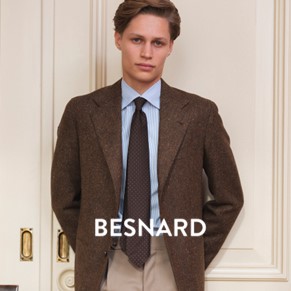



Simon, thank you, this is the best writing I have yet seen on sprezzatura, and grace.
From it I learn a little of how to get there.
Carefully selecting what you acquire and keep and what you discard, so that in a way it is what is at the front of the wardrobe.
And the importance of context, a little different from the surroundings, but only a little and with subtlety, a texture, a colour, a pattern, an accessory, but not all together.
Thank you
This always raises an interesting question with me.. Can a young man have sprezz? Those who nail this look and in my opinion look the finest are those who are slightly older. OK I myself an not that young anymore but much of my wardrobe is new-ish, it has not had enough time to “wear in”, and I also consider myself to still be learning. Also maybe it does not look right with many young men of Pitti because, like myself their wardrobe has not lived enough yet?
Just don’t strive too hard…
I do’nt want to tread on anyone’s toes here but if you look as if you are trying to hard you will lack style.That includes ostentatious displays of wealth….things like a large modern wristwatch…even if it’s a Patek or a modern Ferrari motor car.
This is correct… I bought a watch last year. it took me ages to pick one because I wanted something that was worthy of the milestone birthday and a good investment. Also that didn’t make me look like i should be on a reality TV show. I did end up buying a Rolex but only because i found something I like which was not too large and didn’t “look like a Rolex” from a mile away. Its amazing that some of the shops didn’t seem to understand that I didn’t want something to show off.
i am young and i have spezz, it usually comes along a mastered skill, which you can display efortless
for example, my selected watch is tudor submariner from the ’76 :]
But it is also related to informal social situations, no? And not only but rather sunny weather? Sprezzatura in the rain? Sprezzatura in the opera house or at a military parade? Perhaps it is restricted to a certain age as well… middle aged and older men that do not have the need to prove themselves that have achieved something so they can take it relaxed? Also, does Mark Zuckerberg show sprezzatura 🙂
Replace sprezzatura with the word grace, and ask the questions again
Frank – there are plenty of pictures of L’Avvocato showing sprezzatura in all those situations…
Simon is spot on; Castiglione, after defining sprezzatura, states “from this [sprezzatura] I believe that grace very much derives”
Nowadays, the tie quirks are never successful.
I agree that the first route is the way to approach the subject in the long run. I have built myself a wardrobe that I feel comfortable in and I find myself forgetting about what I wear more often nowadays. I strive to be as comfortable in my clothes as Mr. Luciano Barbera when I get older.
For Italian readers interested in sprezzatura I would suggest “Rosa Tiepolo” by Roberto Calasso.
Simon was it you in Via Manzoni 15 minutes ago ?
Yes! In Milan today, then Florence the rest of the week
I’m reminded of Don Draper’s French father in law’s comments upon first meeting him. He harrumphed and said, “his manners are studied”.
I’ve always thought that the current age of overt sprezz. is at least in part related to the way in which media is consumed on the internet. It seems to me that much of the classic definition arose from a certain bearing or disposition. That is, sitting just so, looking at ease, and never fussing with even the most fussy of clothing items (double breasted jackets and bow ties come to mind). This true nonchalance is really only communicable in person or at least in motion. With most recent style education being transmitted through static images online, we struggle for ways to communicate that same nonchalance. You can no longer rely on your relaxed demeanor, your languid manner of speech, or your arm loosely draped over a chair. Instead, you must communicate that same sense through an undisguised stylistic exclamation point: the unbuckled shoe, the long tie blade, etc. Photos on the internet must shout because they do not grant their subjects the ability to speak.
It’s a good point, though others that have that nonchalance, like Bruce Boyer, Barbera and others, do often get it across despite being static
Great post.
You’re spot on about the Pitti style cliches: the monks, the collars, the bracelets, etc. No doubt a certain American Sartorialist will fall for them.
Again.
We’ll see – and pity – the Pitti peacocks when the show starts.
I’m now going to investigate tracksuit trousers…
Best wishes,
Duncan.
I see it as a variation on Hardy Amies’s advice, “A man should look as if he has bought his clothes with intelligence, put them on with care and then forgotten all about them.” With spretzzatura, “put them on with care” does not imply ‘neatness’ or perfect composition.
Exactly, so many sayings come back to the same idea of grace and ease.
Striving for sprezz seems like a contradiction of terms. First and foremost, be who you are. Wear what you love… Not what you think others will love. Don’t be afraid to wear clothes that are ‘out of style.’ If your wardrobe is a genuine reflection of yourself, interesting combinations can come together effortlessly.
Your very well crafted finish to this piece is sprezzatura too.
Thanks for this Simon, the link to Boyer’s article was also welcome. One other element of ‘Sprezz’ I’ve noticed is the mixing of superficially discordant elements that, weirdly, work together. You point to this re. the tracksuit bottoms, something also shown in Polo’s last Autumn/Winter catalogue. This in turn reflects a carelessly chaotic but creative wardrobe to hand, or, an inherited range of classic oddities. It seems from the article that the best expression is a sense of wit in each outfit, a wink to the observer that it’s all just for fun.
Hi Simon,
Thanks for this timely post!
Obviously, there are two steps envolved in order to reach the level at which one could be in the position to behave with sprezz.
Since, in Bruce Boyer’s words, “once a man’s achieved sartorial perfection – think perfectly fitting navy suit, pale blue shirt, burgundy tie and polished black Oxfords – it’s time to adopt a mask of sartorial nonchalance, a concept better known as sprezzatura.”
Mind you, this level is not merely a matter of look! It would be an easy task or rather easily achievable! For it can’t be a mask. Indeed, it’s at this level, that the mindset, what you call “grace”, comes into its own.
Yet at that level, one doesn’t need to read PS anymore, I’m afraid! I don’t know if you are fully aware of that, Simon.
John
Thanks John. I wouldn’t say that though – the point is that most people with sprezzatura care deeply about clothes (and therefore read great blogs!) they just don’t let it show
An excellent post and, published as it was on the day of David Bowie’s sad passing, a timely one. He captured the essence of the word sprezzatura. Some may disagree and point to Simon’s antonymic description as proof (“eye catching dandyism” and “artifice”) but what supersedes all of that is, as Simon later says, to be so comfortable in your clothes that they feel like a second skin. But clothes will only ever feel that way if you are at ease in your first skin. That is what makes true sprezzatura so difficult to master and what David Bowie made look so simple.
Well said sir!
Isn’t following advice on how exactly to technically achieve nonchalance/sprezzatura exactly what would ensure such nonchalance/sprezzatura is not achieved?
No, that’s how you select the clothes with intelligence before you forget all about them…
A bit like Beau Brummell quite saying he spent two hours tying a tie so that it looked like he had just thrown it on
Exactly, the theme is always the same
I think a very salient point has been made about sprezz being easier to achieve as one is older. By then a man will have had time to develop his style and will no longer be experimenting as much. He will also have certain staples that have aged with him and which he is totally at ease in wearing. You could draw a comparison between Jake from the Armoury on the one hand and Boyer and Tomasso (above) on the other. All three dress stupendously, but I cannot see the ease the later two have in the former.
I also cannot stand the affected, deliberate attempts at nonchalance and I am glad to see the author and other commenters deriding them. The extra long narrow tie blade dangling down like a second appendage is particularly irksome.
An unmentioned element of real sprezz: confidence. Genuine confidence will show up in body language, making sure it doesn’t sabotage otherwise beautiful attire.
A very funny debate.
At the end of the day, those that struggle in this arena are nearly always trend followers.
Wear a shrunken suit with your trousers at half mast. Leave your monk straps undone. Your tie blade too long. Your button down shirt collar unbuttoned. Sport loads of bangles and an oversized garish watch. Don’t wear socks and top it all off with a pocket square, hat, shades, man bag and oversized scarf.
Do all of this and guess what ? Yes, you will look a complete prat.
Hopefully not a surprise for readers in this hallowed cyber hall.
For real Sprezz think Alain Delon and Steve McQueen in their pomp not Pitti Preeners.
When it comes to nationalities, ironically it’s the French that probably come out ahead. They do tend to understand that less is actually more and tend to eschew gross overconsumption.
Great article Simon. I find the concept a very attractive one. It seems the key is unselfconsciousness. Whenever you wearing a new thing or outfit you’re intensely aware of it. Effecting sprezzatura seems to be about feeling relaxed and comfortable and unaware. It’s a lovely idea and one I think you get better at as you get older.
David may laugh at Pitti but for the last 500 years Western art and fashion has had its footing in Italy. The Paris salon was inspired by the Renaissance greats, the architecture of England also (St. Paul’s) and Italy remains at the heart of international men’s fashion. The idea of Pitti (though infleuntial) is not dissimilar to the Detroit motor show; ideas are shown, fun is to be had, but none of it is to be taken too seriously.
Sprezzatura is a quite elusive concept. After all, Castiglione’s Book of the Courtier was a bit of a pedagogical treatise (the Renaissance equivalent of PS?) and aimed at facilitating the emulation of a perceived role model, rather than at some kind of factual description. Sprezzatura can hence never really be “attained”; it says perhaps more something about the insecurity of those who perceive it in others, rather than about those to which it is ascribed. It’s a social construction. By the same token, you can probably not feel at ease in your clothes just by perfecting the art of choosing them.
All of this is really in the eye of the beholder.
Before the “Sprezza” expression became the mot de jour, elegance or elan were probably used to describe men who have an innate sense of style.
One of the posters alluded to this being more evident in older men and this is probably true basically because they have learnt from their sartorial fopauxs, instinctively know what suits them, long ago gave up trying and wouldn’t be seen stiff at Pitti.
The short route is to study the masters – you’ll get there earlier and save yourself a fortune in the process.
I can’t help but let my mind drift towards the concept of shibumi (so playfully on display in Trevenian’s classic novel) when thinking of sprezzatura. Tranquil, everyday elegance and effortlessness. A concept so simple and yet so elusive. Very interesting post. And at times more caustic than you’re critique usually is.
Damian,
What a book!
Shibumi has it in spades – I must re-read this and the prequel by Don Winslow.
David,
What a book indeed. Like Simon mentioned earlier on, those themes tend to circulate. In the end though they appear to be merely embodiments of long established notions and concepts. That’s why, to tie in with your earlier post, it hurts me to see the pictures of the entire line ups of perfectly groomed men-peacocks in Pitti, striving oh so so hard…
PS I wonder if Satori will ever get that long gestating film adaptation.
I have a theory that sprezzatura – much like class, honesty, and sexual prowess – is inversely correlated with how often a person mentions it with regards to themselves.
simon,
where is this amazing cardigan from?
It’s a pretty standard shawl collar model – Drake’s among others do them
Re-read this article in a quiet moment.
I find the photos we use to illustrate sprezzatura look as if they were taken in an unguarded moment. One where the subject is unaware he is being photographed. The clothing may have been chosen with great care or simply thrown on in a rush. But in the photo the subject is entirely himself, no pose or artifice is present. And that is the secret, to put the clothes on and then forget about them.
I wonder if not styling your hair or sporting a unkept beard could be classed as sprezzatura? Being well dressed in a clothes perspective but very casual in a grooming styled sense, could tone down and relax ones appearance.
Absolutely, and it’s about finding the right balance in the same way.
So super-chiselled stubble looks too fussy; but a wild caveman beard looks too unkempt. Somewhere in between
I think that Sprezzatura is something natural that cannot be taught. What do you think Simon about that?
I disagree to be honest. You can observe things that others do and take some of them on board; you can develop a greater ease in your clothes as you grow older; and you can have more confidence in general. All of these help make those deliberate things seems natural.
Hello Simon,
May not be directly related to Sprezzatura but just this:
My perception is that (particularly) Italian men and women from all walks of life make the effort…. Their clothes may be high end or budget but hair is neat, clothes are well chosen, shoes and scarves are considered. In this regard respect is shown to others and oneself, and perhaps the result is life-enhancing.
Daniel
A good point, I guess about how much people care about their clothes and appearance, which the Italians, and Swedes certianly do more than most
Thank you so much for such a lovely article. I am learning a lot everyday about style and fashion because of your articles.
I wanted to ask a question and it would be very kind if you could advice.
I usually dress up for a smart casual function by wearing a ‘ tailored button down Oxford with its sleeves rolled up, chinos and a brown derby or a loafer and a wrist watch which is of the same colour as my shoes and belt’. I always tuck in my shirt. In this situation could the ‘rolled up sleeves’ be considered as ‘sprezzatura’ or would it still be considered fussy?
I would confess that i still did not understand the article clearly and very confused as to ‘what type of outfit should I consider to be fussy and when is there a need to add a bit of grace it’.
Would be really helpful if you could help.
Thanks.
Pleased to hear it.
Rolling up your sleeves is a nice casual touch, if it feels natural to you. But it’s not unusual enough to be called sprezzatura probably. Just a way to relax a bit
Thank you so much for the reply Simon!
Just one last question on this subject if you could reply.
When i am wearing this outfit then because of its tailoring and even the way i coordinate my trouser belt as well as my watch, everything looks perfect according to me. Would you consider it to be appropriate or is it fussy according to you?
Asking this question because i enjoy dressing in this manner and could not understand as to how i add a bit of casualness to it as i would not want to change anything about it.
Thanks for advicing every single time i have ever raised any question.
No worries.
The thing to keep in mind, Ayush, is that appearing to try too hard is rarely stylish. Style should appear easy. So if it looks obvious that you have consciously matched your accessories, that’s worth avoiding. If they’re brown calf, people are unlikely to think that. If yellow crocodile, much more so.
Hi simon,
Your articles are really helpful and helps me dress perfectly for different occasions. I was really glad when my brother Ayush suggested me to read your articles. Regarding sprezzatura, I wanted to know that for a smart casual function I usually dress in casual dark shirt and chinos, and don’t really wear a blazer. I really like wearing charcoal grey wool trousers but have read certain articles of yours regarding smart casual wears where you have suggested not to wear wool trouser as it is on the dressier side. After reading this article you have suggested to mix both formal and casual wears to give a feeling of sprezzatura. Under this thing do you think I can wear a dark casual shirt with a charcoal grey wool trouser for a smart casual function. So would this be considered as a sprezzatura?
I think you can wear that, yes, but I wouldn’t consider it sprezzatura. To be honest, I wouldn’t bother with that concept or mixing formal and informal until you understand the basics of tasteful dressing and are confident in what you wear.
Perhaps make sure you read the ‘Essentials‘ section under Style and the ‘Rules‘ one.
An excellent post and something which always came to my mind but i was unable to express in words to my male friends and sometimes even to myself. I like selecting outfits for my friends and consider it to be one of my hobbies. I would like to ask you one question Simon and appreciate if you could answer.
What is your opinion on tucked out shirts and whether do you consider it sprezzatura?
I don’t like them, because they are not that flattering and not elegant.
But they are not sprezzatura. No one is going to think that you left your shirt untucked by mistake.
Thank you so much for enlightening me with your wonderful opinion.
One last question if i may ask. What is your opinion on jacket sleeves rolled up?
If a person is wearing a less formal jacket like a suede jacket or perhaps an overshirt then could he roll up his sleeves for a relaxed feel or do you find it to be sloppy?
Thanks in advance.
Jacket sleeves rolled up tend to look a little forced – at the most, turning back the ends just once. But folding back sleeves once or twice on an overshirt is fine
I think the key point about sprezzatura is confidence. Anything, from rolled up sleeves to untucked shirt, can be worn in a nonchalant way if the wearer radiates enough confidence. As a consequence, if someone has to ask if this or that can be considered sprezzatura, the person will most likely not be elegant in a sprezzatura way, as they simply lack the confidence to just pull it off.
I think you’re right Raphael, that does matter a lot. I would also say that no one starts confident though – everyone begins with some uncertainty, at some age. Confidence comes from trying things slowly, finding out what works for you, and gaining confidence from the fact that you know it does.
Whether the person is confident in general or not, it makes a huge difference if you’re rolling up your sleeves for the first time, or the 100th.
I think some of the readers here are thinking a little too much about sprezzatura and what it is, rather than just trying subtle things that they like and having fun doing so.
Would you agree?
Exactly, Simon. I have seen people of whom I could not say they were wearing particularly exciting clothes (think all the high end features that are covered on your blog) but who just looked great because they were comfortable in their own skin and have found their style that fits them and their personality.
It doesn’t really lead anywhere to copy Italian playboys who live entirely different lives and expect to look just as good as them. Like most things in menswear, looking elegant, which I prefer over the term sprezzatura, in 99% of cases is a journey.
When I came across the term sprezzatura for the first time, I asked people in Italy that I consider to dress effortlessly elegant about that word and surprisingly they have never heard of it.
So yes, I think some readers definitely think too much about it.
Well said.
I think sprezzatura is an interesting side note, nothing more. Elegance is a very different concept, and more important
I’m delighted to hear that on those occasions when I don’t do up the flies on my trousers, given this is done without artifice (forgetfulness, if anything), I may inadvertently be demonstrating “sprezz” and not sloppiness.
No, I’m afraid not Rob. It requires both lack of artifice and looking good…
Personally, I think Rob’s way of adding an extra pleat to his trousers is inspired!
Thank you for such great articles and advice.
In an environment where dressing has become so casual how could a person display sprezzatura?
The reason I asked this question is because when everyone is wearing jeans, t shirt and sneakers I go on and wear jeans, tshirt and some nice shoes like loafers. Nothing much changes but only the fit of outfit and my shoes. In this kind of dressing I am unable to find ways where I can display sprezzatura. It would have been easier to show sprezzatura if it has been formal dressing.
Good point Kallis. It’s much harder to do sprezzatura with casual dressing, but also you don’t really need it.
Sprezz is great for making smart clothing look relaxed and not too mannered. There isn’t that risk with casual clothing.
If anything, I think the challenge with casual clothing is to slip in elements of quality or elegance without people almost noticing
So maybe instead of jeans if you wear linen trousers and roll it up, wear polo instead of a t shirt and add espadrilles in place of sneakers then it becomes easy to add in quality clothing without appearing formal or stiff.
Do you agree with it Simon?
And also is it a good look to roll up linen trousers?
I think that is a good look, yes. I don’t particularly like rolled-up linen trousers, but try it and see what you think
Simon would normal navy t shirt you if not knitted look good with cream linen trousers rolled up and espadrilles? It can be much better in signalling casual than polo and also maybe high low dressing
Yes Ayush
Does rolling up chinos add a bit of sprezzatura to it?
How do you add sprezzatura to your outfit?
I must say this effortless stylish look is actually a very difficult concept. Still not be decipher outfits which could look effortlessly stylis.
Not really. To be honest I wouldn’t spend much time thinking about sprezzatura and how to do it. It’s much too easy to just odd fake. Instead, I would focus on making sure you’re comfortable in your clothes and feel easy in them
Thank for advice.
So according to you how can one fake sprezzatura?
Sorry if I wasn’t clear – I meant it could look fake if you try too hard
Just one last question.
How can a man wear a nice outfit, not add any imperfection to it but still look unfussy?
That’s an interesting question Monty.
It might deserve a post all of its own, but I think key to it is feeling comfortable in what you wear – which is a mix of not trying too hard, and wearing familiar things (which comes with time).
Then, perhaps things like playing around with the cloths. Roll the sleeves of the shirt up a bit, don’t fuss with the collar too much. Wear things you know look good and then forget all about them.
Thank you for the advice?
What does ‘ don’t fuss with collar’ mean?
Don’t worry about whether the collar is sitting exactly right – on your neck, in the sweater or jacket, etc. Don’t fiddle with it!